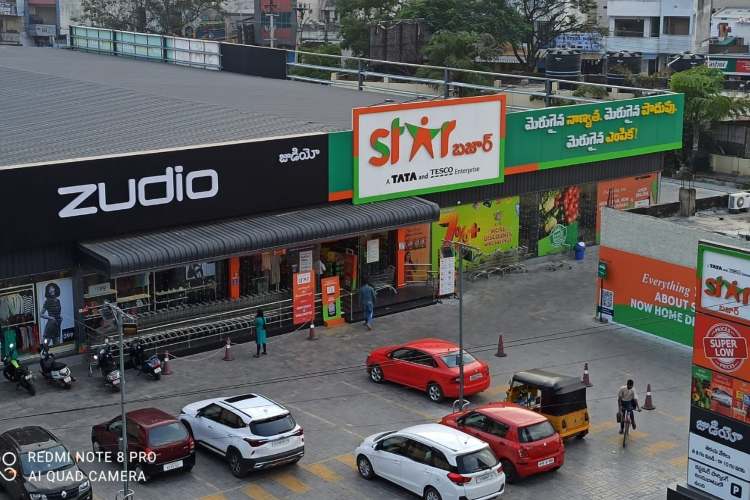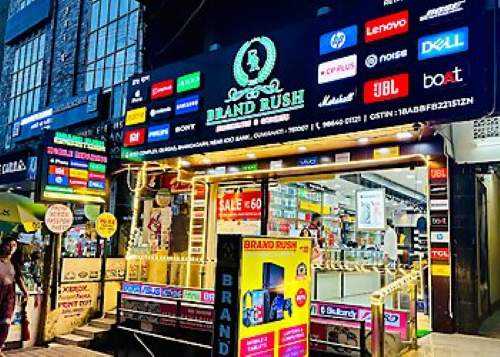
Maharashtra’s 24×7 shops reform: Maharashtra’s decision to allow shops, malls, restaurants, and theatres to remain open 24 hours a day is being hailed as a leap toward modernising urban commerce. It reflects a state seeking to align with the rhythm of a global economy that rarely sleeps. Yet, as promising as the reform appears, it risks being cosmetic unless governance, regulation, and civic infrastructure evolve with equal speed. Economic liberalisation cannot thrive on administrative rigidity.
The Maharashtra Shops and Establishments (Regulation of Employment and Conditions of Service) Act, 2017 already empowered the government to permit 24×7 operations. But for years, local administrations and police imposed restrictions, forcing traders to close early. The latest circular finally clarifies the law, directing authorities not to obstruct any compliant establishment — except those serving alcohol or tobacco products — from operating round the clock.
Maharashtra’s 24×7 shops reform promises several benefits. Extended hours can increase retail footfall, generate more jobs, and revive night-time economies in cities like Mumbai, Pune, and Nagpur. A 2022 Deloitte report on India’s retail sector projected that night-time commerce could contribute up to 8 per cent of total urban retail revenues by 2030, provided states liberalise operating hours. For Maharashtra, a state contributing nearly 14 per cent of India’s GDP, even a modest boost in urban spending can translate into thousands of crores in additional output.
READ I How corporate social responsibility lost its purpose
The promise of Maharashtra’s 24×7 shops
Urban centres such as London, New York, and Singapore operate vibrant night-time economies built on efficient policing, public transport, and labour protection. The World Bank’s 2023 Urban Productivity Report noted that cities embracing flexible retail and entertainment hours experience up to 5 per cent higher GDP growth through improved service availability and tourism.

Mumbai, already a global city, could use this opportunity to reposition itself as a truly 24×7 metropolis. The Brihanmumbai Municipal Corporation’s (BMC) draft 2030 urban plan identifies “round-the-clock economic zones” as key to increasing employment in services. Extended hours also support gig and platform workers—delivery agents, cab drivers, and service staff—who rely on continuous demand cycles. However, without matching infrastructure, the policy risks overburdening cities.
Public transport systems still shut early; metro lines end operations before midnight; and most suburban railway stations are deserted post 1 a.m. For women, in particular, safety concerns remain paramount. A city cannot claim to be open 24×7 if half its population feels unsafe after dark.
Labour rights must not become collateral
The circular on Maharashtra’s 24×7 shops reform makes it mandatory for employers to provide every worker a weekly rest period of 24 consecutive hours, echoing provisions of the 2017 Act. This is an important safeguard, but it must be enforced through regular inspections and digital record-keeping.

India’s retail workforce — largely unorganised and often paid below minimum wage — remains vulnerable. According to NITI Aayog’s 2024 Labour Market Trends Report, nearly 60 per cent of India’s retail employees work without written contracts. Extending work hours without strong monitoring could worsen precarity, especially for women and young workers in malls and quick-service restaurants.
States such as Karnataka and Delhi introduced similar 24×7 permissions earlier, but their experience shows why regulation matters. Delhi’s 2022 notification was followed by reports of wage theft and burnout in sectors lacking adequate staff rotation. Maharashtra must avoid this pitfall through clear digital registration of shops, randomised audits, and collaboration with labour unions and civil-society watchdogs.
Governance and infrastructure lag behind
Economic reforms in India often falter at the level of execution. A recent NCAER study on state business reforms found that less than half of announced ease-of-doing-business measures are implemented without bureaucratic friction. For 24×7 commerce to work, multiple departments — labour, urban development, transport, and police — must operate in sync.
Moreover, the physical ecosystem of cities must evolve. Street lighting, waste collection, traffic management, and last-mile transport all need 24-hour service provision. Night-shift policing must expand in density and visibility. Municipalities must establish “Night Commissions,” similar to London’s Night Czar model, to coordinate between businesses, residents, and safety authorities.
Even electricity distribution requires adaptation. The Central Electricity Authority reports that India’s urban load curves remain heavily daytime-skewed. If Maharashtra’s policy succeeds, late-night demand could rise by 3–4 per cent, necessitating better grid management and renewable integration to prevent emissions spikes from night-time thermal generation.
A step forward, but not a panacea
Maharashtra’s 24×7 shops reform fits the larger narrative of economic reform in India — liberal in vision but uneven in implementation. Maharashtra’s challenge is not about issuing circulars but sustaining confidence in rule-based governance. Traders need clarity, not periodic police raids or conflicting local orders. Workers need protection, not token rest clauses. Citizens need safety and transport, not slogans of a “global city” that sleeps through its own inefficiencies.
There is also a fiscal dimension. Round-the-clock retail generates higher consumption and tax receipts, but local bodies must channel this revenue into infrastructure upgrades. Without such reinvestment, the reform risks widening the divide between affluent business districts and neglected residential zones.
Equally, small traders may struggle to compete with corporate chains capable of hiring multiple shifts. The government should consider incentives—such as electricity rebates or night-security subsidies—for smaller establishments willing to extend hours. Otherwise, the “24×7 economy” may become a euphemism for big-business convenience rather than inclusive growth.
If Maharashtra wishes to make this initiative a model for other states, it must accompany it with three structural changes: First, the state needs to establish a single-window digital platform linking labour, municipal, and police permissions to prevent harassment and ensure real-time grievance redressal. It must allocate part of state GST revenue to create well-lit, secure, and accessible urban corridors for late-hour businesses, and mandate transparent shift scheduling, minimum night wages, and emergency transport for women employees, monitored by labour inspectors and municipal committees.
Reforms that expand economic liberty but ignore administrative capacity rarely endure. Maharashtra’s 24×7 shops reform could transform urban life and employment—if matched by the political will to reform governance itself. The state’s economy may now be open 24 hours a day, but for meaningful progress, its regulators, inspectors, and public services must remain awake too.
